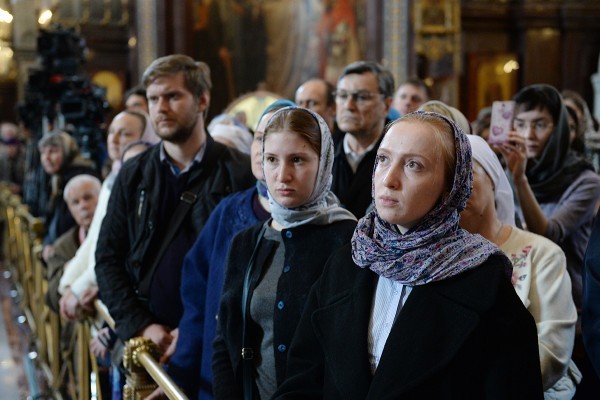The poll, which surveyed 1,600 people living in 130 populated areas, of 46 regions of Russia, was conducted on April 23-24.
Sixty-seven percent of the respondents said they hope for God’s help in their daily life to a certain extent, which is a 18% increase from 1991 (49%).
Fourteen percent of the respondents (against 21% in 1991) said they do not believe in God, and 11% said they do not hope for God’s help. Three percent of the respondents answered differently and 5% were undecided.
As compared to 1991, Russians now believe more in phenomena associated with religion. Fifty percent of the respondents said they believe in religious miracles, which is a 18% increase from 1991 (32%). Forty-six percent of the respondents (against 33% 25 years ago) are confident that there is life after death. Forty percent believe in the devil and hell (against 25% and 24% in 1991).
Responding to a question as to whether human life is predestined by higher forces, 48% of the respondents said that it is (against 25% in 1991).
Forty-five percent of the respondents surveyed in 1991, said that human life does not depend on God’s plan, and now, only 26% of the respondents said so. Eighteen percent of the respondents said they equally disagree, and agree, with the allegation that human life is predestined by God.
Speaking about whether anti-religious works should be banned at the legislative level, 58% of the respondents answered positively. This indicator has not changed since 1991 (58%). Twenty-five percent of the respondents spoke against such a ban, and 17% were undecided.

















